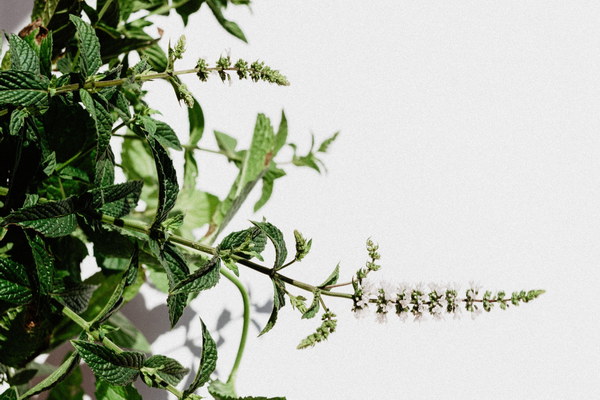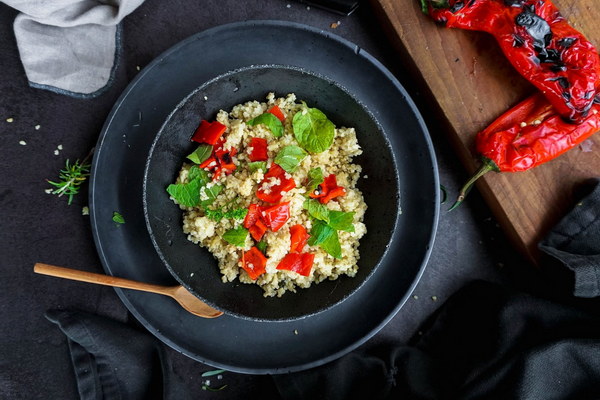Revitalize Your Body A Guide to Traditional Chinese Herbs for Nourishing Blood Yin and Spleen
In the realm of traditional Chinese medicine, there exists a wealth of natural remedies that have been passed down through generations. These remedies aim to restore balance and harmony within the body, addressing a variety of health concerns. One such group of remedies focuses on nourishing blood, yin, and spleen. In this article, we will explore the benefits of these herbs and how they can help you achieve optimal health.
1. Nourishing Blood
The concept of blood in traditional Chinese medicine is not limited to the red liquid that circulates through our veins. It encompasses the overall state of the body's vitality, including energy, strength, and immunity. Herbs that nourish blood are used to treat conditions such as anemia, fatigue, and weakness.
Some of the most commonly used herbs for nourishing blood include:
- Angelica sinensis (Dang gui): Known as the King of Herbs, dang gui is renowned for its ability to enhance blood circulation, regulate menstruation, and improve fertility. It is often used to treat anemia, menstrual cramps, and menopausal symptoms.
-Polygonum multiflorum (He shou wu): This herb is a powerful antioxidant that can help rejuvenate blood cells and improve overall vitality. It is often used to treat hair loss, premature aging, and weakness.
- Rehmannia glutinosa (Shu di huang): Shu di huang is known for its ability to nourish the blood and Yin, as well as strengthen the kidneys. It is commonly used to treat anemia, fatigue, and weakness associated with kidney deficiency.
2. Nourishing Yin
Yin in traditional Chinese medicine refers to the cool, moist, and nourishing qualities that are essential for maintaining health and balance within the body. When Yin is depleted, one may experience symptoms such as heat, dryness, irritability, and restlessness.
Herbs that nourish Yin are used to treat conditions such as night sweats, hot flashes, and dry skin. Some of the most commonly used herbs for nourishing Yin include:
-Schisandra chinensis (Wu wei zi): This herb is known for its ability to nourish Yin and tonify the lungs. It is often used to treat insomnia, fatigue, and irritability.
-Ophiopogon japonicus (Mai men dong): Mai men dong is a cooling and nourishing herb that is used to treat dryness and heat in the body. It is commonly used to treat night sweats, hot flashes, and dry skin.
-Aster tataricus (Bai zhu): Bai zhu is a cooling and nourishing herb that can help balance the body's Yin and Yang. It is often used to treat fever, thirst, and irritability.
3. Nourishing the Spleen

The spleen in traditional Chinese medicine is responsible for transforming food into energy and maintaining the health of the digestive system. When the spleen is weakened, one may experience symptoms such as fatigue, bloating, and weight gain.
Herbs that nourish the spleen are used to treat conditions such as digestive issues, fatigue, and weakness. Some of the most commonly used herbs for nourishing the spleen include:
-Atractylodes macrocephala (Cang Zhu): Cang Zhu is a warming and drying herb that is used to treat dampness and spleen deficiency. It is often used to treat bloating, weight gain, and fatigue.
-Poria cocos (Fu ling): Fu ling is a soothing and drying herb that is used to treat dampness and spleen deficiency. It is commonly used to treat digestive issues, bloating, and weight gain.
-Angelica sinensis (Dang gui): As mentioned earlier, dang gui is not only beneficial for nourishing blood but also for tonifying the spleen. It is often used to treat digestive issues, bloating, and fatigue.
In conclusion, traditional Chinese herbs can be a valuable resource for those looking to nourish their blood, Yin, and spleen. By incorporating these herbs into your daily routine, you may experience improved energy levels, enhanced vitality, and overall better health. However, it is important to consult with a qualified healthcare professional before starting any new herbal regimen to ensure that it is safe and appropriate for your specific needs.









